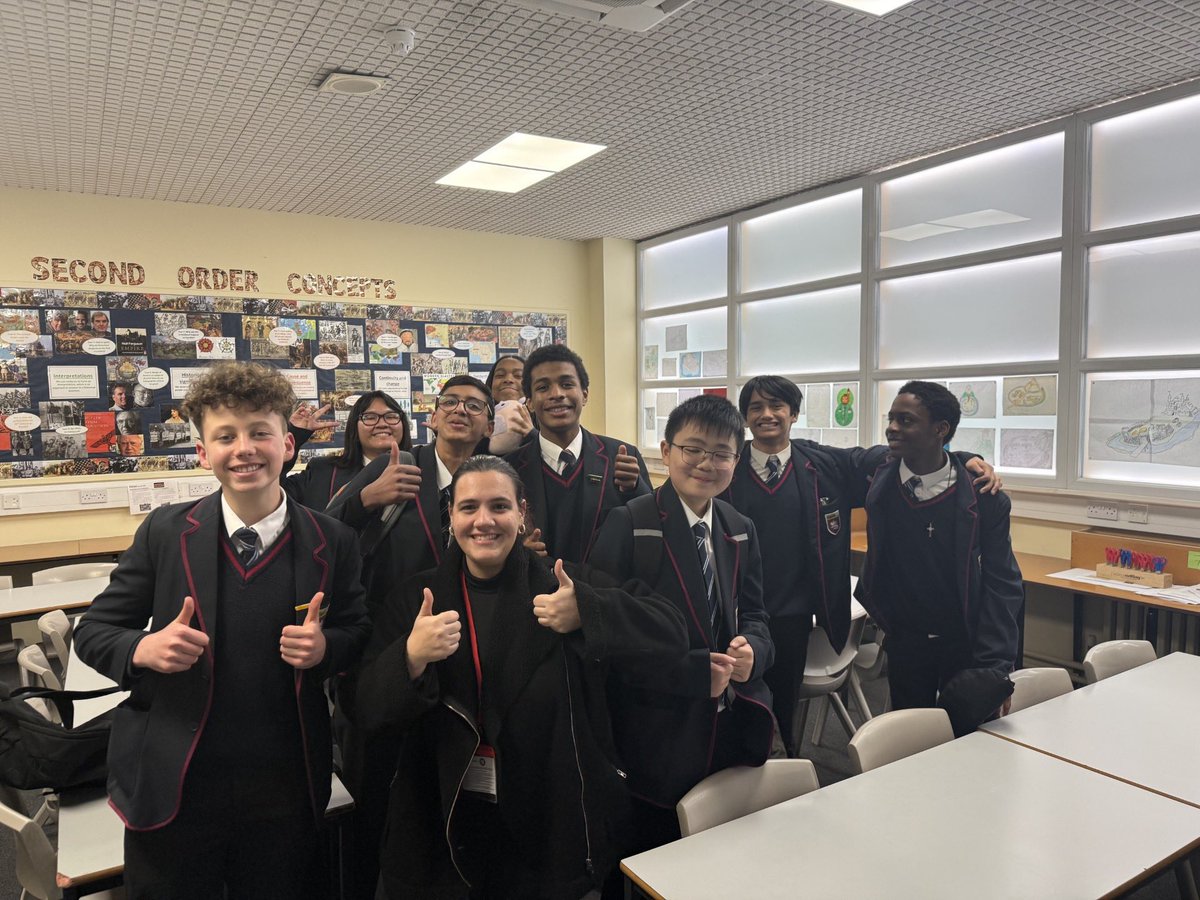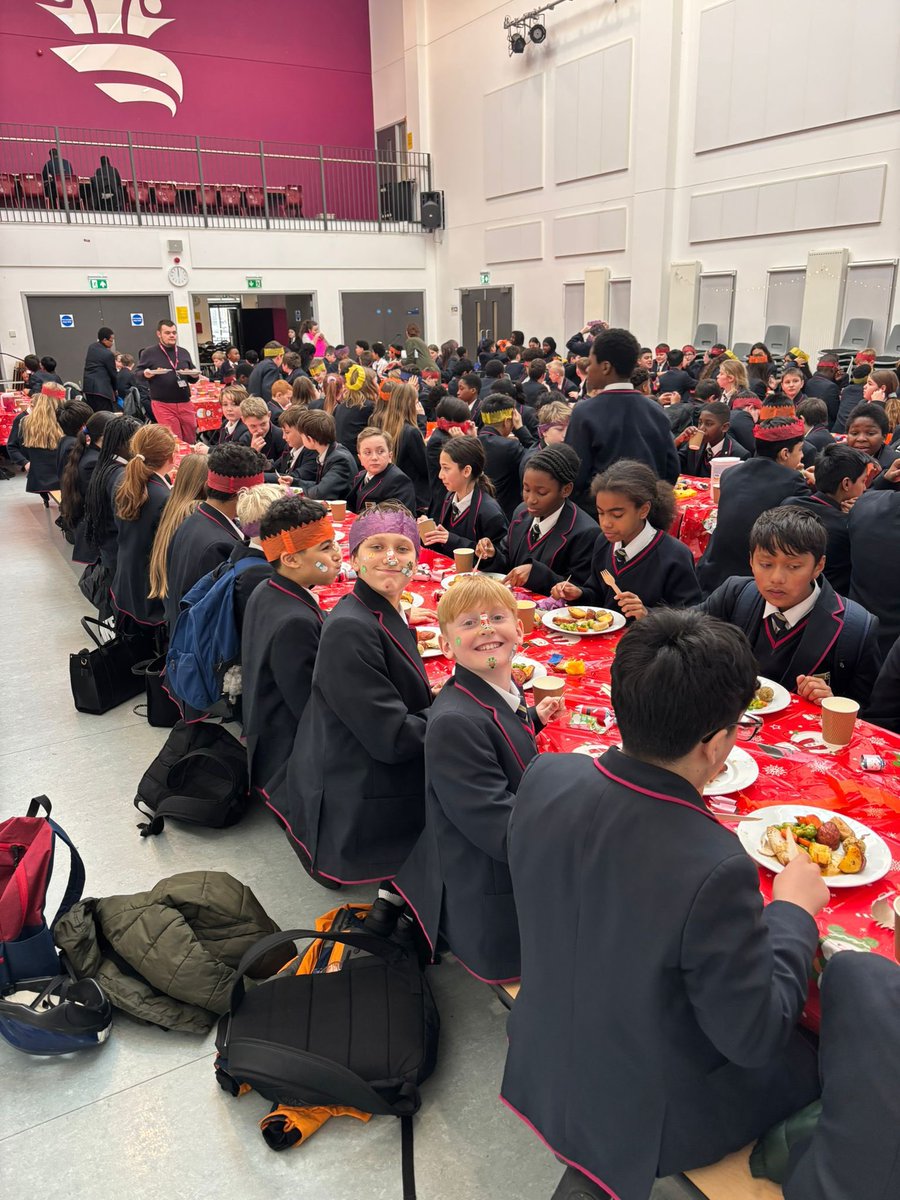Drama
Drama Curriculum Narrative
Our Drama curriculum is exciting, engaging and inspiring. We strive to inspire an appreciation of the Arts and to deliver a curriculum that promotes creativity, promises inclusivity and pursues excellence, equipping our students with the skills needed to live a happy and successful life. Students are encouraged to consistently develop three threads of drama: creating, performing, and responding. Through this practical and theoretical exploration, all students develop the skills and techniques needed to explore societal topics as well as aspects of human behaviours including character, theme and issue, allowing them to connect to a variety of character personalities and equipping them with the ability to analyse, evaluate and debate with well-justified reasoning.
The study of Drama is essential in developing individuals to be creative, cognisant and confident. Through our dynamic and stimulating curriculum, students will discover the history of theatre as well as recognise that it has been, is and always will be a powerful tool for reflection and change. Students will be guided to develop their awareness of behaviour and emotion, enhancing their sense of self and of others. They will also be supported in the development of personal, teamwork and communication skills, giving them the confidence, awareness and emotional empathy needed to be articulate and well-informed individuals. With the skills and knowledge acquired through studying Drama, our young adults can pursue a further education and career in any area of the performance industry or for any role that involves public speaking, leadership, teaching, coaching and managing.
KS3
Year 7
In year 7, we encourage students to begin to play with atmosphere, setting and character whilst introducing fundamental skills needed for practical dramatic performances, layering physical and vocal techniques gradually to ensure students have time and space to strive for mastery. For example, students will explore story-telling as a form of ‘Narration’, they will create and describe mood in ‘The Haunted Lift’ and they will learn to analyse and interpret text in ‘The Tempest’ and ‘The Woman in Black’ by using practical exploration to look at character, relationships and atmosphere. We introduce the concept of open dialogue, focusing on the use of oracy as a way of expressing ideas and meaning to embed the need for clarity of expression and coherent articulation. Alongside this, we teach students the theory behind Drama, introducing them to key production elements/performance skills so that they are able to dissect a performance from the angle of designer, director and performer.
Year 8
In year 8, students build upon their existing skills/knowledge through exploring character and situation but by also introducing the use of props to create atmosphere and storyline to analyse/evaluate Drama. The techniques delivered through texts/topics/characters all increase in complexity. For example, students explore the ‘Melodrama’ style of performance, experiment with ‘Mask and Chorus’ work and dive into Shakespeare’s ‘Romeo and Juliet’ for deep character analysis. We also introduce a more complex script that only uses two performers in ‘The Stones’ where the students tackle topics and issues that they encounter as youths themselves. Our expectations for open dialogue increase as students debate and justify ideas whilst learning how to question each other to improve verbal response and performance critique. Moreover, we revisit theoretical knowledge and introduce new production elements, whilst also layering appropriate technical terms to enhance student ability to break down a performance and its intended meaning.
Year 9
For our year 9 curriculum, again, students draw on previously learnt techniques and expand their creative and imaginative abilities through devising and script work. They begin the year with a practical study of key Drama practitioners and discover how to use practitioner influence to devise original theatre. They progress to explore ‘9/11’ where the techniques and elements of drama are used to explore a real-life event and generate a raw reaction to tragic events and human behaviours. Students will also explore practical script work looking at ‘Bouncers’ and discover how to rehearse effectively, how to successfully apply performance skills to realise character and how to create a piece for live theatre. Students will then be challenged to use existing text- extracts from ‘Lord of the Flies’- as stimuli to encourage innovative thinking and performance. Alongside our expectations of excellent oracy within lessons, students learn about the technical elements of Drama through a 12 week scheme focusing on decoding ‘Blue Remembered Hills’ practically and theoretically in order to understand and learn about characters, themes and issues. They will have the opportunity to practise writing and creating their own design concept, using specific examples to analyse, evaluate and justify their choices.
At the end of Year 9, students will have mastered the essential skills needed to successfully create, perform and respond to Drama. They will have created performances that challenge them to step outside of their own lives and perform as someone totally new to them, giving them an understanding of character, behaviour and emotion as well as enhancing their confidence and awareness of self. They will be able to respond to performances and voice their opinions/ideas on societal topics/issues both verbally and in written form, assisting them on their journey to become articulate and well-informed individuals.
KS4
Year 10
As students progress to KS4 and begin their study of GCSE Drama, they will begin to hone their craft by exposure to a variety of practitioners and performance styles. They will continue to develop their ability to create, performance and respond to Drama as the characters and topics covered progress in challenge and complexity. We begin our GCSE with a practical and theoretical exploration of key practitioners and performance skills, including: Stanislavski, Brecht, Artaud and many more. Students learn about the varying techniques used within theatre before taking the time to practically create work in the appropriate style – the develop their ability to communicate and express their own ideas. This is interleaved with an in-depth study of performance elements to allow students to connect all areas of performance. Students complete Component 1 of the GCSE in year 10, using stimuli to devise an original piece of theatre for a contemporary audience and completing a 2,000 word portfolio that evaluates the devising process.
Year 11
In year 11, students carry out an extensive exploration of the set text ‘An Inspector Calls’ in preparation for the Component 3 exam. Students practically bring the script to life whilst also developing key exam techniques in preparation to successfully complete the Component 3 written exam. Students will also complete the Component 2 practical exam where they rehearse a piece of theatre for live performance to a visiting examiner. The final thread explored in year 11 is a theatre review where students learn how to analyse and evaluate live performance, discovering how theatre makers use skills and production elements to express meaning to an audience.
KS5
Year 12
Our A level curriculum is designed to draw upon the students’ existing skills and knowledge, whilst enhancing their ability to create, perform and analyse Drama and theatre of varying styles. Year 12 begins with an in-depth study of the major theatre practitioners, interleaving theory and practical knowledge to create a rich pool of understanding that encompasses past and contemporary theatre practices. Students build on their ability to deconstruct a text as they move on to exploration of a published script, where they become familiar with the issues, themes and characters presented. This knowledge is used in Component 1; students devise an original piece of theatre using an extract of the text as a stimulus.
Year 13
Component 2 is completed in year 13 where students rehearse and perform a monologue and group piece to a visiting examiner, revisiting their rehearsal and performance skills and fine tuning their ability to present character and communicate practically with an audience. The texts studied for the Component 3 written exam, completed at the end of year 13, are interleaved throughout the two-year course. Students enhance their existing script, decoding skills, and learn new methods to analyse and evaluate text through the practical and theoretical study of ‘Equus’ and ‘The Tempest’. Across this course, we expand students’ awareness of theatre through trips, giving them experience of excellent and contrasting theatre to be used as inspiration for their own studies but also as a live theatre review for the Component 3 written exam.
Through the study of Drama through to KS5, students will have practically and theoretically explored a variety of characters, emotions, themes and issues. They will have a greater appreciation for human emotion and behaviour, allowing them to empathise and understand a range of situations. They will have developed their confidence and ability to articulate their opinion/ideas with justified and well-thought out reasoning whilst their experience with creating and performing in a group will stand them in good stead for being an effective and efficient team member. Overall, students will have become well-rounded and well-grounded young adults who have the essentials skills and experience needed to live happy and successful lives.






















